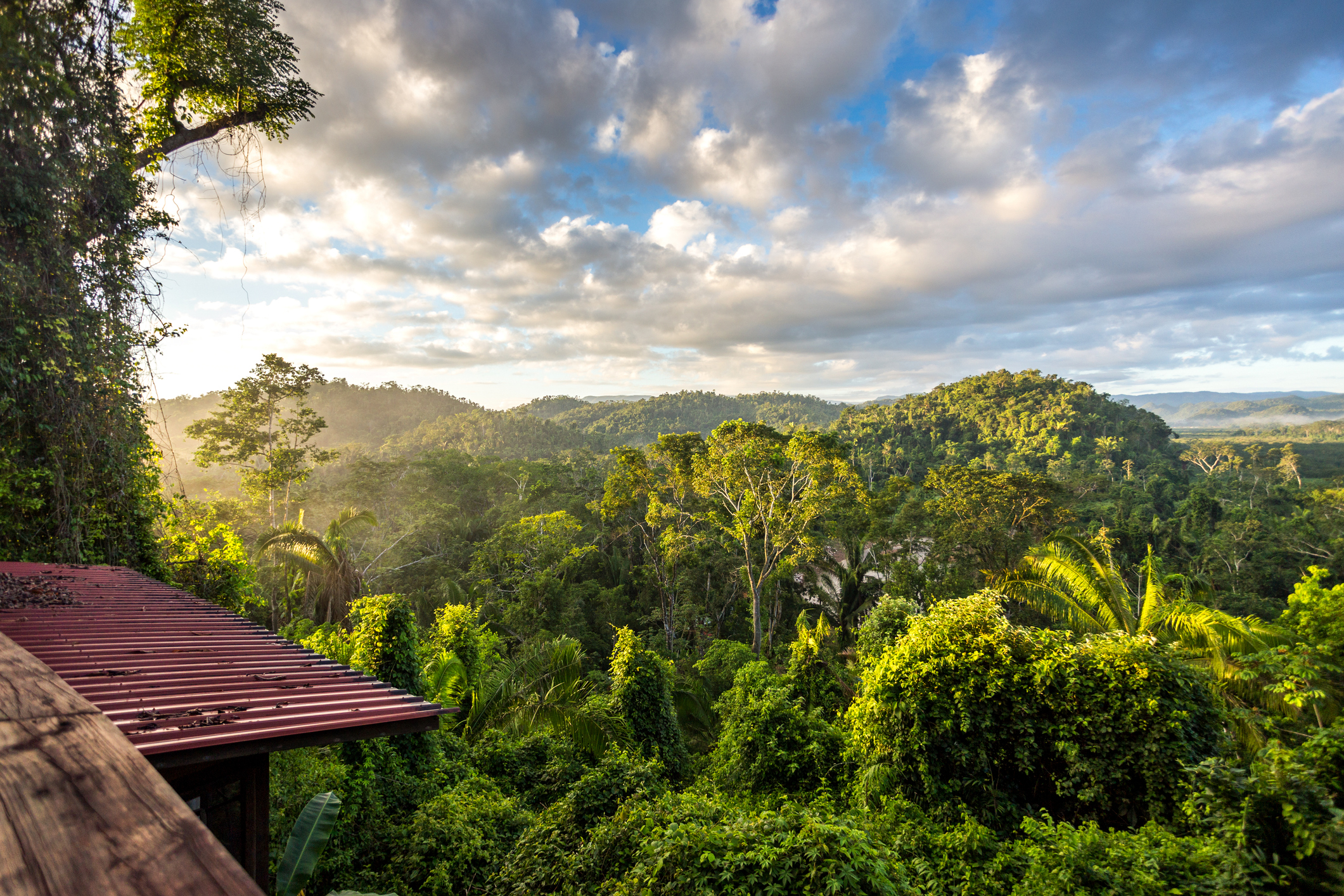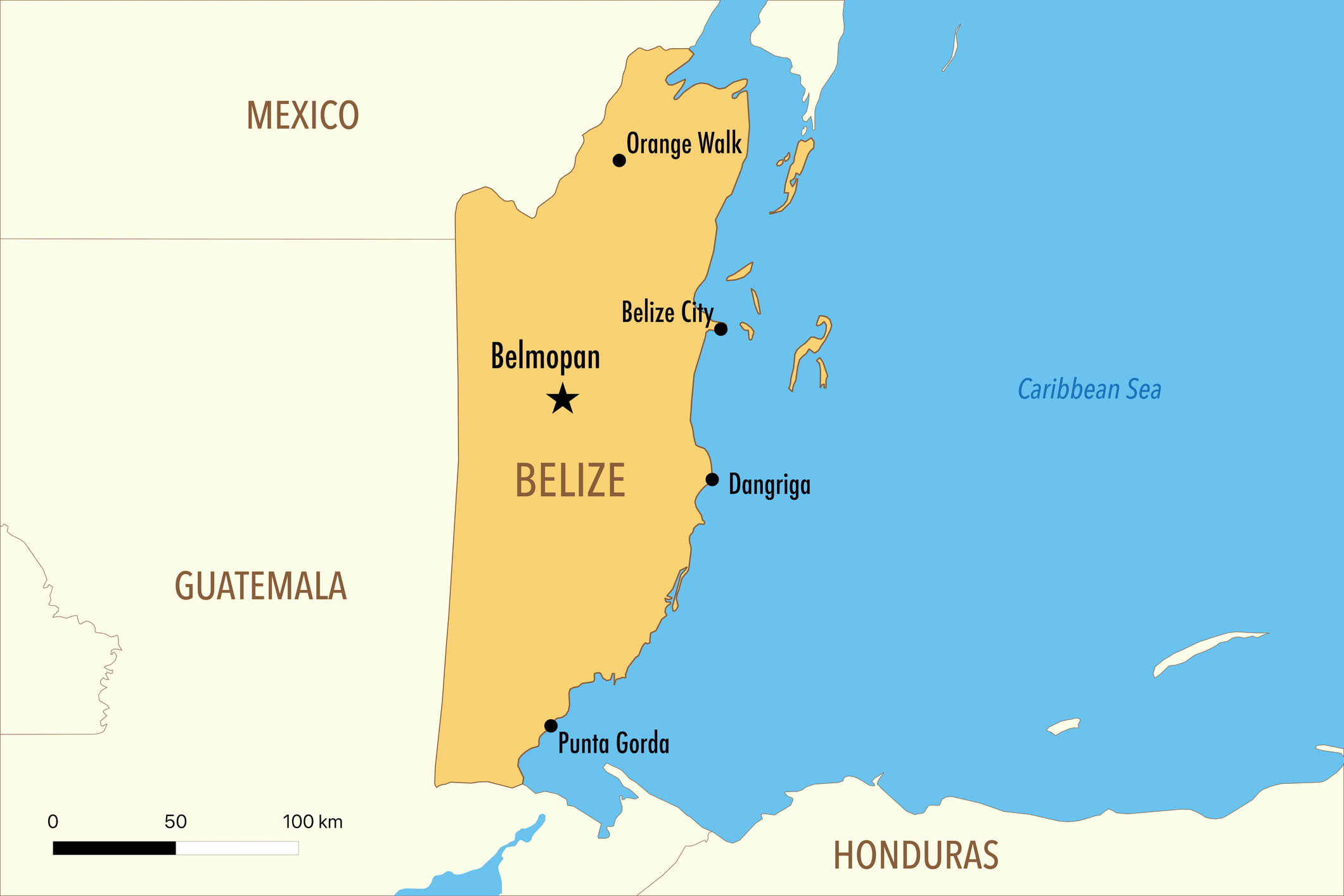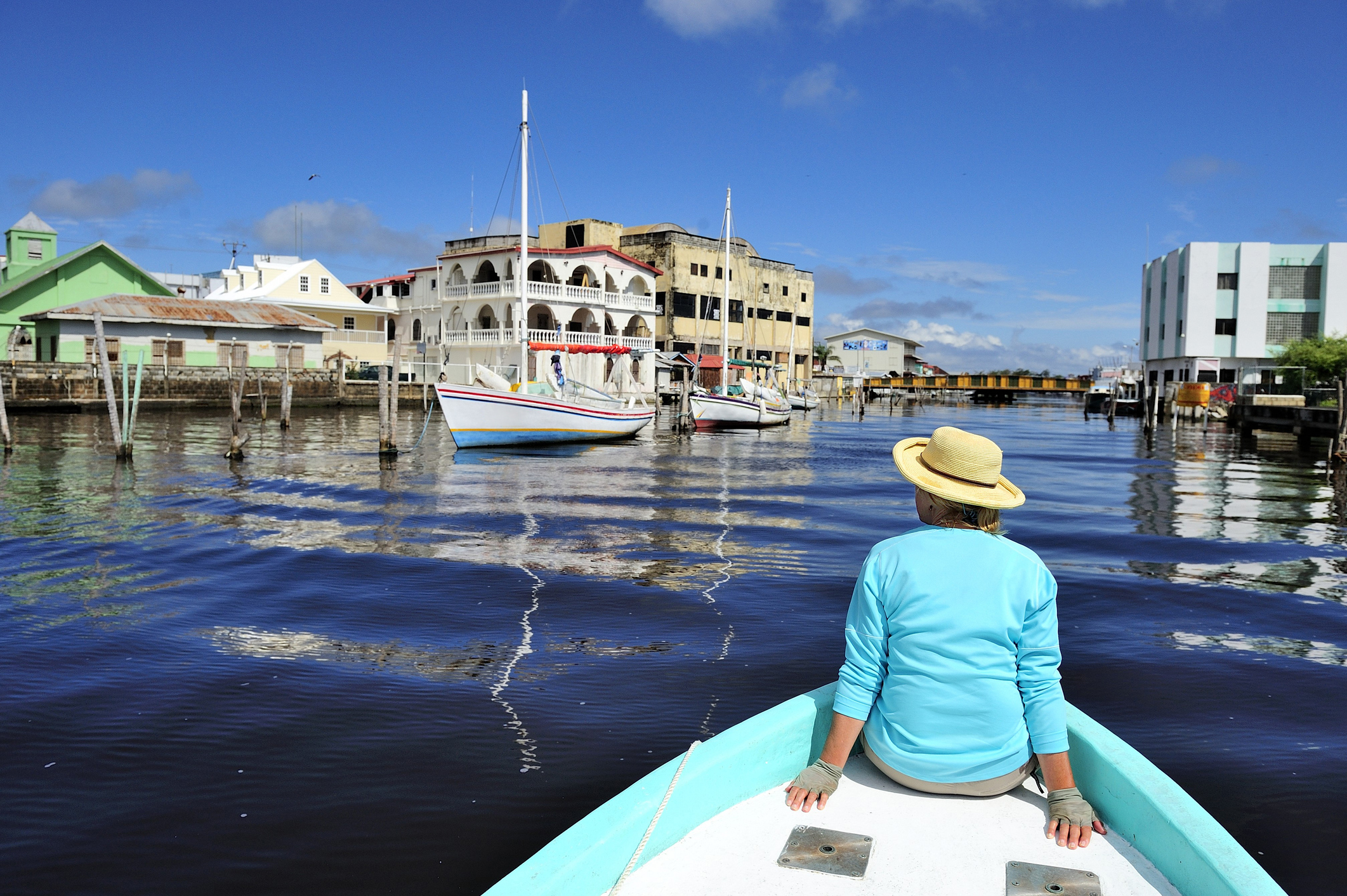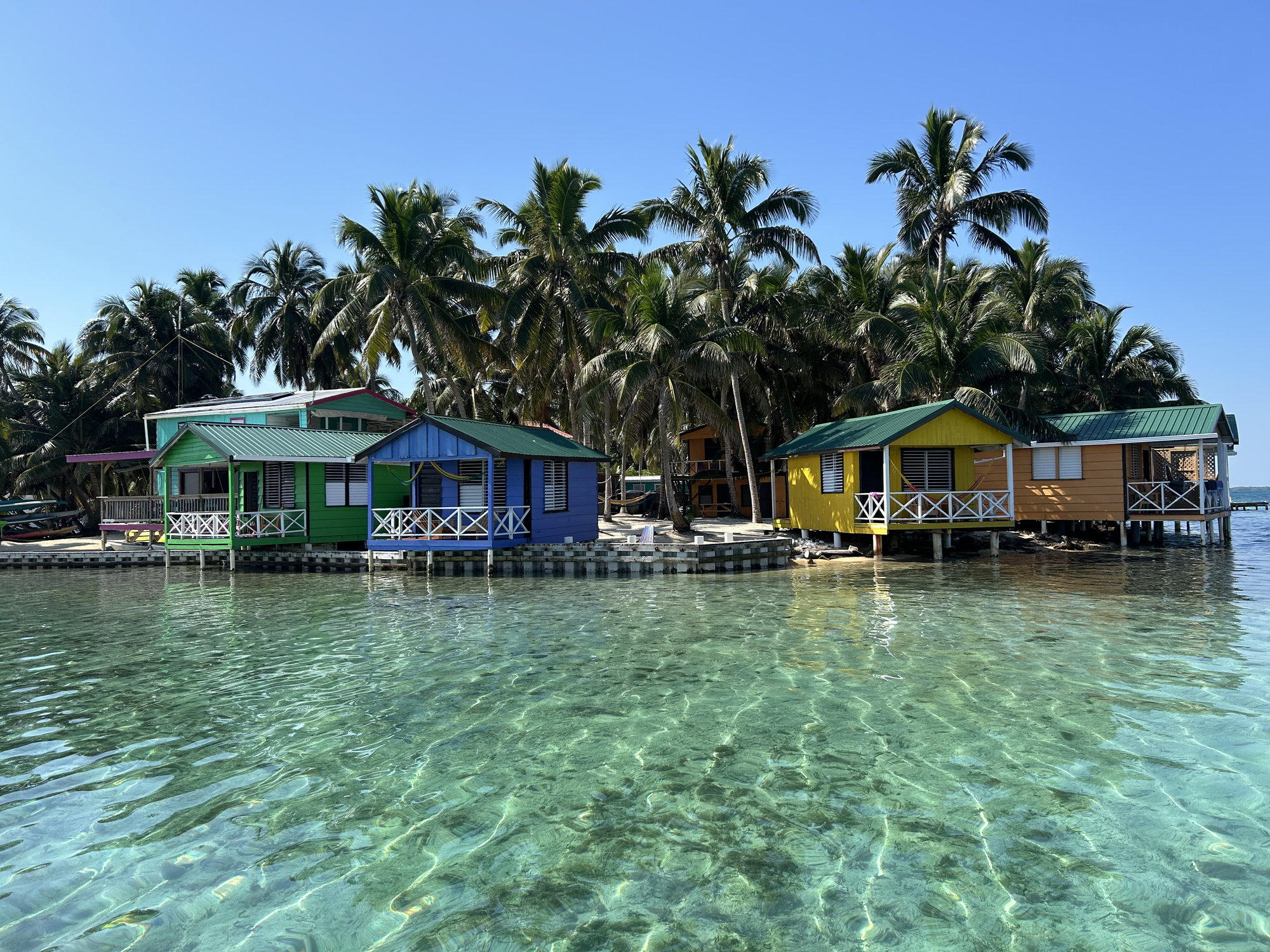Retire in This Central American Country for Natural Beauty and Culture
Many expats retire in this tropical setting to explore the country's huge barrier reef and enjoy a relaxed lifestyle. Best yet — the visa program is easy-breezy.


Profit and prosper with the best of Kiplinger's advice on investing, taxes, retirement, personal finance and much more. Delivered daily. Enter your email in the box and click Sign Me Up.
You are now subscribed
Your newsletter sign-up was successful
Want to add more newsletters?

Delivered daily
Kiplinger Today
Profit and prosper with the best of Kiplinger's advice on investing, taxes, retirement, personal finance and much more delivered daily. Smart money moves start here.

Sent five days a week
Kiplinger A Step Ahead
Get practical help to make better financial decisions in your everyday life, from spending to savings on top deals.

Delivered daily
Kiplinger Closing Bell
Get today's biggest financial and investing headlines delivered to your inbox every day the U.S. stock market is open.

Sent twice a week
Kiplinger Adviser Intel
Financial pros across the country share best practices and fresh tactics to preserve and grow your wealth.

Delivered weekly
Kiplinger Tax Tips
Trim your federal and state tax bills with practical tax-planning and tax-cutting strategies.

Sent twice a week
Kiplinger Retirement Tips
Your twice-a-week guide to planning and enjoying a financially secure and richly rewarding retirement

Sent bimonthly.
Kiplinger Adviser Angle
Insights for advisers, wealth managers and other financial professionals.

Sent twice a week
Kiplinger Investing Weekly
Your twice-a-week roundup of promising stocks, funds, companies and industries you should consider, ones you should avoid, and why.

Sent weekly for six weeks
Kiplinger Invest for Retirement
Your step-by-step six-part series on how to invest for retirement, from devising a successful strategy to exactly which investments to choose.
Editor’s note: This article is part of an ongoing series on retiring abroad. To see all the stories in the series, jump to the end.
In the hilarious and harrowing 2013 film August: Osage County, Juliette Lewis, who plays Meryl Streep’s dreamy youngest daughter, is willing to overlook her fiancé’s considerable transgressions as long as he fulfills his promise to take her to … Belize. There’s little to suggest that she knows much about the sliver of this Central American country. Still, her stated ambition elicits knowing laughter, because for many, Belize represents nirvana — the ultimate place to escape the rat race and enjoy a barefoot, beautiful life.
Belize lies enviably on the Caribbean coast, just south of Mexico, an advantageous neighbor (more on that later), and to the east of Guatemala, which has its own convenient charms. Belize enjoys a subtropical climate, with the dry season from November to April. With around 400,000 people tucked into fewer than 9,000 square miles, the country punches above its weight for both travelers and those from the U.S. considering retirement abroad.
From just $107.88 $24.99 for Kiplinger Personal Finance
Become a smarter, better informed investor. Subscribe from just $107.88 $24.99, plus get up to 4 Special Issues

Sign up for Kiplinger’s Free Newsletters
Profit and prosper with the best of expert advice on investing, taxes, retirement, personal finance and more - straight to your e-mail.
Profit and prosper with the best of expert advice - straight to your e-mail.
Chalk that up to its white-sand beaches, a scattering of islands (called cayes), rustic-luxurious spas nestled in the forest, and cinematic hotels developed and owned by legendary filmmaker Francis Ford Coppola. “You have a great mix of inland experiences and island lifestyles,” says Minister of Tourism and Diaspora Relations Anthony Mahler. “Belize is small, yet big enough that you don’t get claustrophobic.” In addition, there’s the ease of travel. You can fly to Belize City from Atlanta in a little more than three hours, and the flight from Miami is just a tad more than two. The drive to increasingly popular Tulum, Mexico, takes less than six hours.
Belize is a former British colony, and English is widely spoken. “Not only do we speak English, but our laws are based on English common law, so it’s easier to cut through the red tape, compared to our neighbors in the region,” says Ryan Wrobel, principal of Wrobel & Co. in Belize City. Wrobel, a New York transplant and dual citizen of the U.S. and Belize, has practiced law in Belize for 16 years. He handles various practice areas in addition to immigration, and he says that the range comes in handy when expats need assistance in settling down in Belize, from real estate transactions to importing goods (which is tax-free during the first year of residency).
Where to retire in Belize

Mahler says that Placencia, the beachfront village at the tip of a peninsula in southern Belize, remains a draw for expats. Travelers who haven’t visited in years will be suitably impressed by how spiffed up it is. “There’s been an explosion of really high-value homes, more restaurants, and the road has been vastly improved,” Mahler says. “It’s well organized in terms of tourism and retirement infrastructure.” He says that a two-bedroom, two-bathroom house or condo would cost from $1,000 to $1,500 for a monthly rental. For purchase, “I saw one the other day for about $375,000, with a pool.”
Condo development in San Pedro, a town located on popular Ambergris Caye, also attracts expats. “It has nightclubs and restaurants, scuba diving and snorkeling, flyfishing and deep-sea fishing — everything you want in terms of sun and sand and sea,” Wrobel says. He also recommends the San Ignacio area for more of a jungle wildlife experience — toucans and jaguar spotting.
Corozal, located just nine miles from the Mexican border, also has its expat fans who flock to the Consejo Shores development, Mahler points out. Across the border you’ll find the hedonistic pleasures of Cancun, the archeological sites of Tulum, and advanced medical treatment. Wrobel says Belize provides good basic care — getting stitches, setting broken bones — but for specialized care and chronic conditions, crossing the border into Chetumal, Mexico, is the way to go.
Belize, being a low-lying coastal country, is highly vulnerable to climate-related risks, such as hurricanes and sea level rise. Ensure you understand the risks associated with a given location before buying or renting a property.

Visa and money matters: so simple
Wrobel notes that the Belize Tourism Board governs the expat retirement program. Compared to just about any other country, expat retirement in Belize is simple and straightforward. There’s no golden-this or investment-that. There is only the Qualified Retirement Program (QRP). “I started this program 25 years ago,” Mahler says. “It was one of my babies.”
QRP visa basics
You must be 40 or older, and you can bring your spouse and children under 18 as dependents. In addition, you must pass a security clearance check carried out by the Ministry of National Security in Belize. The residency requirement is not particularly arduous: You must remain in Belize for a minimum of 30 consecutive days annually.
QRP financial requirements
You must show that you can support yourself, with a monthly passive or retirement income of $2,000 a month, or $24,000 a year. Those numbers can be met by a pension, annuity, Social Security, investment income, IRA, reverse mortgage, inheritance, or personal savings, as long as the equivalent of the required funds is deposited into a financial institution in Belize. (For example, your Social Security checks need not be electronically or physically deposited into a Belizean bank; the $2,000 per month can be deposited from any source listed above, including a transfer from your U.S. bank account.)
“A QRP member is legally not required to surpass the $24,000 threshold [but] they are entitled to if they so choose,” says Romy Rancharan, a QRP specialist from the Belize Tourism Board. “They are also not required to close their international bank accounts or transfer all their money and investments into a Belize Bank account. A QRP member can hold both international and domestic accounts. Additionally, the Belize Tourism Board does not monitor or regulate how the money deposited into a Belize Bank account is spent. It is the member’s money and is solely for their personal use.”
Moreover, according to Mahler, purchasing a home for at least $24,000 will also satisfy the financial requirement.

Making it easy
If you’re thinking that Belize is avidly seeking expats, you would be right. When Mahler saw Costa Rica and Panama becoming magnets for expats, he was inspired to do the same for Belize. A litany of retirees from around the world are offered the same deal as U.S. expats, so you might find yourself in a multicultural scene, mixing with people from the European Union, Asia-Pacific, and South America. The not-especially-rigorous qualifications are enumerated on the country’s tourism website. The whole QRP process can take as little as two or three months.
Currency: Belizean or U.S. dollars
In terms of currency, the Belizean dollar is pegged to the U.S. greenback: one U.S. dollar equals two Belizean dollars. And U.S. dollars are widely accepted. In addition, Mahler says, “We also changed the legislation last year to allow retires to invest, but not work [in-country]. You can invest in a hotel, but you can’t work in the hotel. And you can volunteer.”
Health insurance
Wrobel says that local health insurance costs about $4,500 a year for a family of three, and that you can use that insurance in another country if Belize does not provide a particular treatment.
Remote workers and digital nomads are free to type away, without tax penalties: “QRP is the only legislation in Belize that specifically exempts foreign-source income in Belize,” Wrobel says, “so if you are a QRP, and the service you’re providing is for a non-resident of Belize and the origin of your income is coming from outside Belize, that is not taxed in Belize.”
Status symbol
“QRP members are classified as Retiree Residents,” Rancharan explains. Something else Rancharan says to keep in mind: “The QRP Program is not linked to the Permanent Residency Program. The Belize Permanent Residency Program is a separately legislated residency visa program, managed and regulated directly by the Belize Immigration and Nationality Department under the Belize Immigration Act. Should a QRP member wish to pursue permanent residency at any point in time, they are legally required to first revoke their membership under the QRP Program.”

Living in Belize: The takeaway
Belize is exotic and subtropical, yet close to the U.S. in terms of geography and culture (i.e., currency and language). The scenery is lush and varied, and those who are physically fit will get the most out of inland excursions. On the other hand, Belize draws a conspicuous population of those who just want to soak up the sun and sea with a cocktail in hand. Nothing wrong with that.
Those with delicate constitutions and health issues will want to think carefully about whether Belize is the right choice, and if so, gravitating toward the Mexican border as a place to live would be prudent.
LGBT singles and couples should note that while Belize decriminalized same-sex activity in 2016, and antigay discrimination is unlawful, same-sex marriages are not legal in Belize. At the same time, San Pedro has long been a popular LGBT tourism destination, and polls show that Belize is one of the most accepting Caribbean countries of the community.
More on where to retire abroad
- Retire in Japan: It Ain’t Easy, Unless You’re Special
- Retire in Malaysia for Affordable Luxury
- Retire in Finland and Live the Nordic Dream
- Retire in Ecuador for an Affordable, Rich Life
- Retire in Costa Rica for Expat Heaven
- Retire in Malta for Quiet Coastal Perfection
- Retire in New Zealand for Lush Landscapes and a Relaxed Vibe
- Retire in Italy for Culture and Beauty
- Retire in Greece for Relaxed Living With a Cinematic Backdrop
- Retire in Thailand Where 'The White Lotus' Was Filmed
- Retire in Mexico: Get a Lower Cost of Living Near the US
- Where to Retire: Living in Portugal as a US Retiree
- Where to Retire: Living in the Dominican Republic
- Where to Retire: Living in Panama Offers Stability and Charm
- Where to Retire: Living in Brazil Is More Than Carnival, Coffee and Copacabana
- Where to Retire 2025: Puerto Rico
Profit and prosper with the best of Kiplinger's advice on investing, taxes, retirement, personal finance and much more. Delivered daily. Enter your email in the box and click Sign Me Up.

Drew Limsky joined Kiplinger Digital as a freelance retirement writer because he believes that every day offers opportunities to make better financial decisions, and that it’s never too late to learn how to enhance your financial position and lifestyle. Drew is the former editor of Lexus magazine, Cadillac magazine, South Florida Business & Wealth, Business Jet Traveler, Interiors South Florida, and Mariner (for Holland America). Drew’s writing credits include The Wall Street Journal, New York Times, LA Times, Washington Post, Boston Globe, Yahoo, Worth, AD, Robb Report, Metropolis, Men’s Journal, and Business Insider. An Emory grad, Drew earned his JD and PhD at NYU, and lives in Miami Beach, Brooklyn, and Cape Cod.
-
 Quiz: Do You Know How to Avoid the "Medigap Trap?"
Quiz: Do You Know How to Avoid the "Medigap Trap?"Quiz Test your basic knowledge of the "Medigap Trap" in our quick quiz.
-
 5 Top Tax-Efficient Mutual Funds for Smarter Investing
5 Top Tax-Efficient Mutual Funds for Smarter InvestingMutual funds are many things, but "tax-friendly" usually isn't one of them. These are the exceptions.
-
 AI Sparks Existential Crisis for Software Stocks
AI Sparks Existential Crisis for Software StocksThe Kiplinger Letter Fears that SaaS subscription software could be rendered obsolete by artificial intelligence make investors jittery.